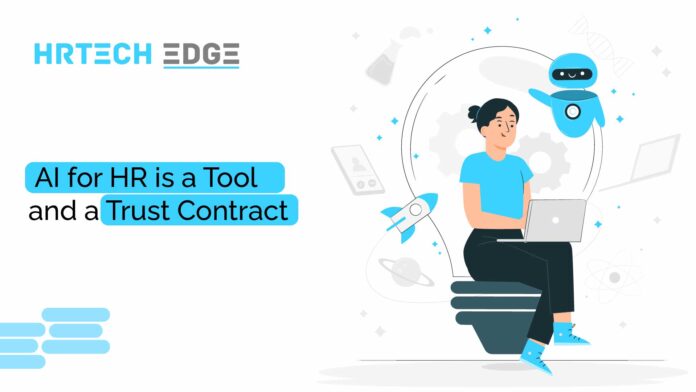AI is quickly becoming a central player in HR technology, with the potential to transform how employees access benefits, understand eligibility, and engage with wellbeing resources. However, in the race to innovate, trust must remain paramount.
That trust hinges on how AI tools are designed, deployed, and governed, especially in areas as sensitive as healthcare, personal data, and employee experience. From HIPAA to GDPR to CCPA, privacy is a crucial foundation to build on.
Beyond the Chatbots: The Rise of AI Agents
Not all AI is created equal. Many HR platforms still rely on traditional chatbots with static systems with pre-programmed decision trees. These tools are rigid and limited, offering the same generic response to every user, regardless of their role, benefits eligibility, or personal circumstances. At best, they provide surface-level assistance. At worst, they erode trust by delivering inaccurate or irrelevant information.
In contrast, a modern AI agent functions more like a digital HR team member. It delivers real-time, personalized answers by layering your company’s unique benefits data on top of powerful, pre-trained AI models. The key difference is that this AI doesn’t rely on guesswork or generic information. It integrates directly with eligibility files and internal documentation to deliver precise responses securely, confidentially, and at scale.
Privacy by Design
Responsible AI deployment starts with privacy and data protection. The best AI solutions treat compliance not as an afterthought, but as a design principle. That means:
- HIPAA compliance to ensure that Protected Health Information (PHI) is never exposed to unauthorized users.
- SOC 2 Type II certification to validate that operational controls around availability, confidentiality, and integrity are in place and tested over time.
- GDPR and CCPA frameworks to give employees control over their data, including rights to access, consent, and deletion.
Crucially, employee inputs should be anonymized before reaching the AI model, and those models should never store, retain, or train on employee data. Real compliance is both legal and cultural. It builds the trust that drives adoption.
Oversight Matters
AI doesn’t replace humans, it augments them. That’s why continuous human oversight is essential. Leading solutions are intentionally not “self-learning” in uncontrolled environments. Instead, they rely on rigorous QA testing, constant refinement, and tightly governed output monitoring. Transparency isn’t optional with such powerful technology, it’s critical.
If your AI vendor can’t explain how the model is trained, what data it uses, or how its outputs are reviewed, that’s a red flag.
Platform-Agnostic Flexibility
Another must-have is flexibility. Organizations should never be locked into a single ecosystem to access high-quality AI. Best-in-class AI agents are modular and platform-agnostic. That means you can integrate them into your existing tech stack, whether or not you use the full platform that developed them.
This kind of decoupled architecture gives HR and IT teams the freedom to innovate without disrupting what already works. It also lowers the barrier to adoption, allowing organizations to test AI in targeted use cases before scaling.
Undoubtedly, AI is changing how people experience work, but it should only be implemented and deployed thoughtfully. The stakes are high when you’re helping someone understand their mental health benefits, find the right provider, or navigate a personal crisis. That’s why security, transparency, and compliance have to be more than buzzwords, they need to be baked into the architecture of every AI decision.
HR leaders have an opportunity to usher in a smarter, more responsive future. But the real differentiator isn’t simply capability, it’s credibility. Make sure to choose AI that earns your employees’ trust every step of the way.
| About Arthur Lane | About Grokker |
|
Arthur Lane is Head of Marketing for Grokker, where he leads efforts to transform how employees access and engage with their benefits. With over 30 years of experience in healthcare technology, product development, and marketing, Arthur has held senior leadership roles at Accolade, 2nd.MD, Onlife Health, and Verizon Wireless. He holds multiple patents in virtual healthcare solutions and chronic care management, bringing deep expertise in healthcare innovation and digital health platforms to the benefits navigation space.
To learn more about how AI-powered benefits navigation can transform your organization’s benefits ROI, connect with Arthur Lane on LinkedIn or visit grokker.com.
|
Grokker transforms employee physical, mental, and financial well-being globally through our visually immersive content. Our inclusive community of experts and personalized guidance is proven to strengthen retention by 68%, triple engagement, and lessen the burden on HR teams.
With Grokker, each member’s well-being experience is personalized to help guide them to the lowest acuity, highest impact intervention. Our solution seamlessly integrates with your HR team and provides them with ongoing actionable insights. Global organizations like Delta Air Lines, Pfizer, Target, and Domino’s trust Grokker to support the diverse well-being needs of their teams in over 179 countries. Grokker is dedicated to making holistic health and well-being equitable, engaging, and accessible for all. |
Stay ahead of the curve. Subscribe to HRTechEdge for your competitive edge.






